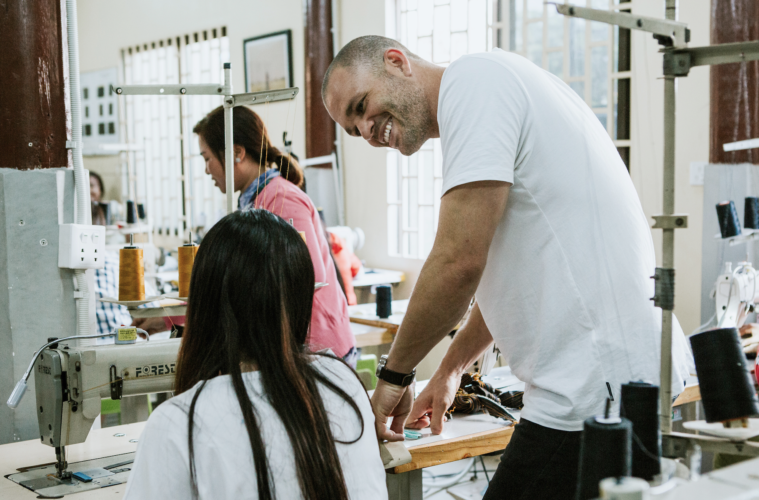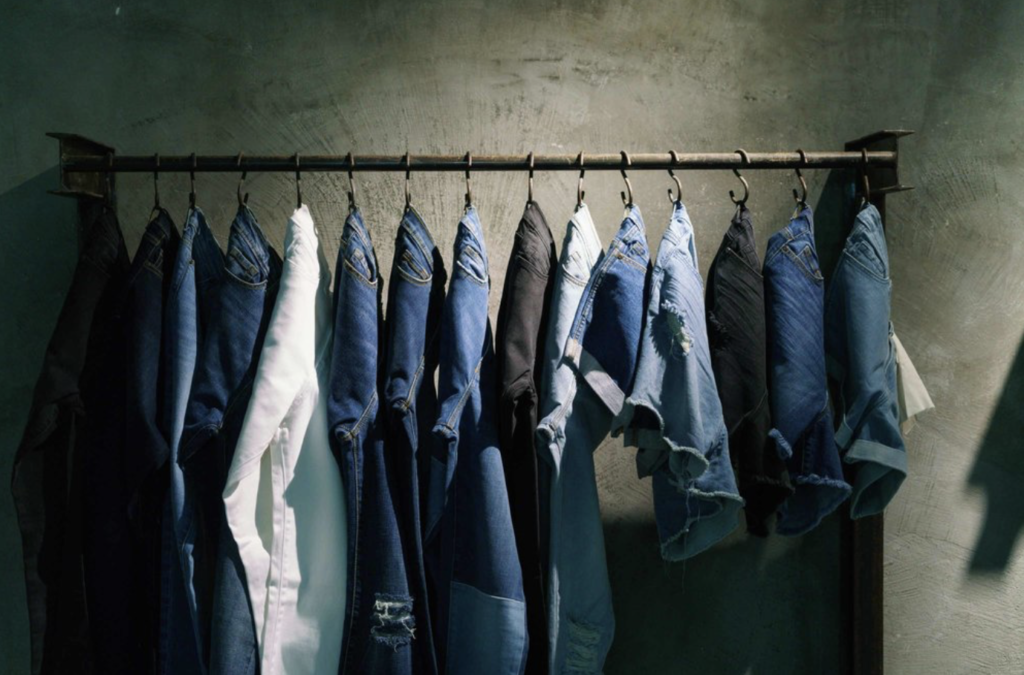
OUTLAND DENIM MAKES A SOCIAL IMPACT
We met up with Australian denim designer James Bartle to discuss the process and the purpose behind his brand, Outland Denim. Statistics say that the average person wears jeans three and a half times a week. That adds up to a large population of denim wearers. The popularity of this staple item in almost everyone’s wardrobe, however, means that there is a ton of production happening around the world that’s causing harm to our water and planet. Outland Denim is changing the way it creates denim with a sustainable process that also helps young Cambodian girls.
Bartle launched his brand in 2011 after encountering an anti-trafficking group and learning about how young girls are preyed on and sold in the sex industry. After hearing this, he created the “Denim Project,” which taught these young girls new skills through sewing jeans. In 2016, Bartle launched Outland Denim.
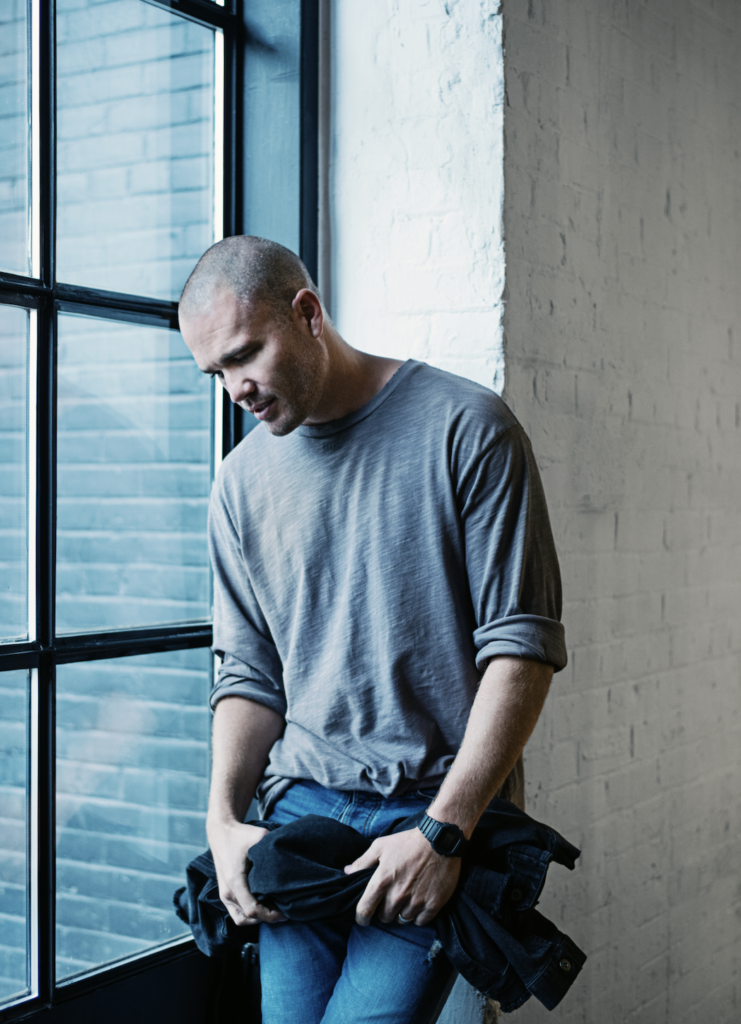
THE SOLUTION: TEACH A MAN TO FISH
“In Cambodia minimum wage has been traditionally low, but over the eight years we have been working in the country, we’ve seen them rise from $60US to around $182US for the garment industry. That’s partly due to the international pressure to do the right thing and to business like ours investing in people to ensure these people are rewarded for their work equitably.”
Bartle came up with a business model that gave women jobs in order to educate them, give them independence and keep them away from the sex trade. Outland’s factory trained girls in producing jeans and, in a two and a half-year period they learned pattern-making, grading and sewing, which is very difficult.
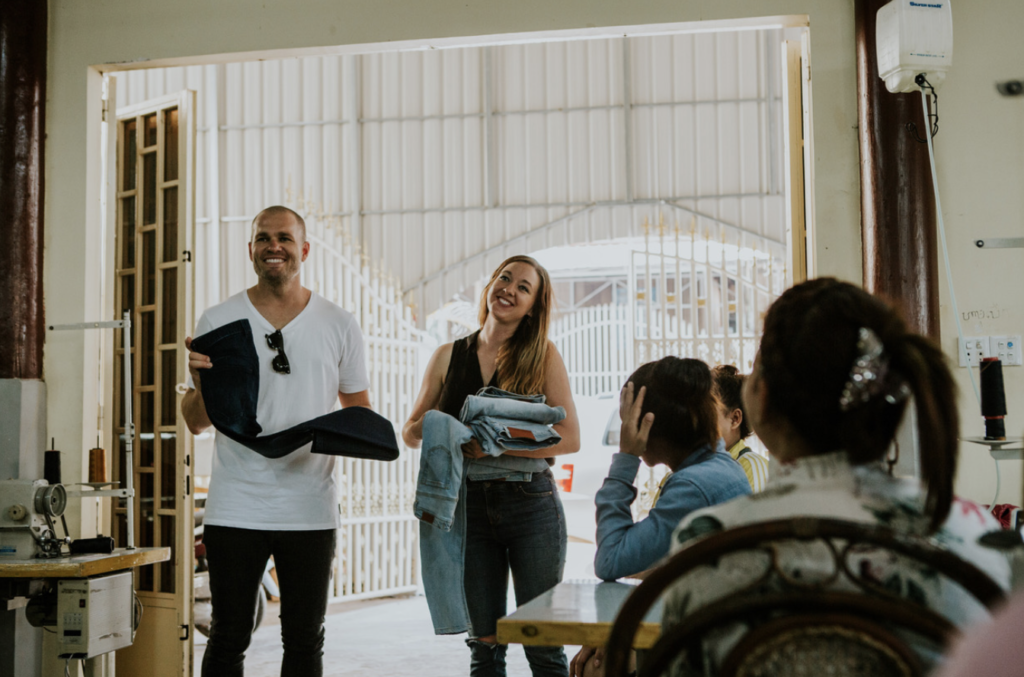
Bartle took this one step further, too. The girls learned not only how to make jeans but also how to speak English, and an education in finance, women’s health and infant care––basically, a life education. Bartle’s mission is that, in the future, the girls are able to take these skills and get a job elsewhere.
“We know each of our seamstresses by name, and they earn a living wage and are given the support to build a bright future for themselves. They are the reason we do what we do.”
AN ALL-WOMEN FACTORY
The factory is made up of all women because that is who Outland is protecting. “It’s difficult to bring men into the scenario,” says Bartle. A big part of sexual exploitation is the cultural issue. It could cause a lot of problems for the women in our factory.”
BLUE DOGS AND THE NEW PROCESS
The denim industry has been completely irresponsible in terms of both emissions and water pollution. Have you heard of the blue dogs of India? They are dogs that have blue fur because of the dye in their drinking water, an obvious health hazard.
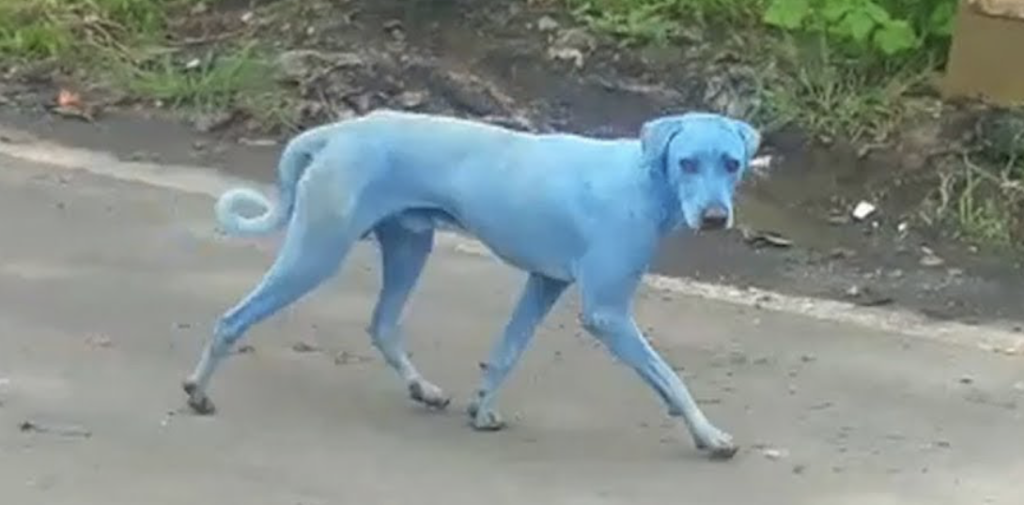
Bartle tells us, “We have just invested heavily into a new, environmentally-friendly facility for the finishing and washing process, the part where a lot of the environmental damage typically happens. This is the part that creates the sludge that’s full of fibres and chemicals and is expelled into the water. This is particularly bad because jeans are normally washed several times in the dyeing process.”
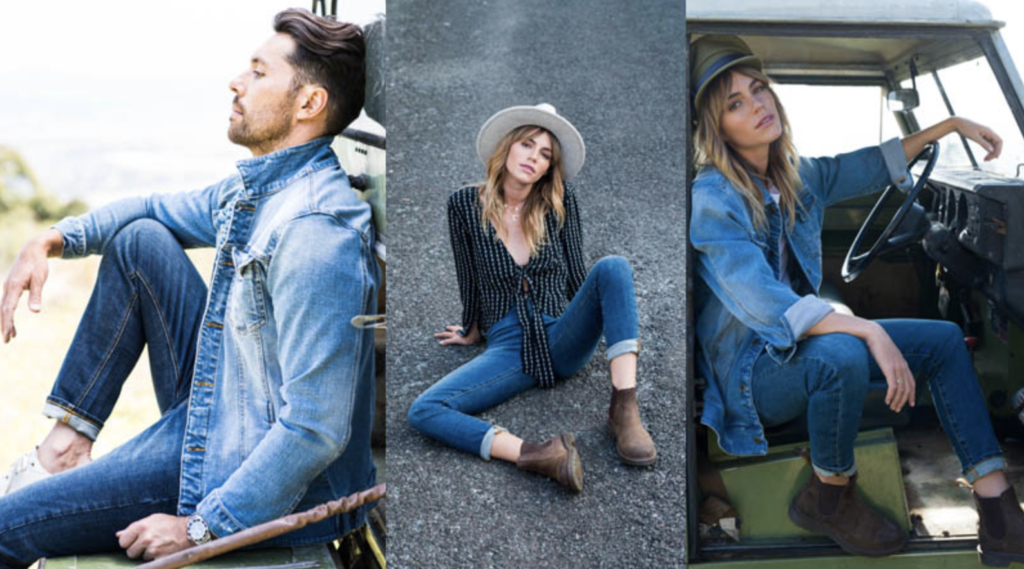
Outland has adopted some of the latest technologies, like laser-washing, a method of distressing jeans without water that has been around for a few years. Laser-washing means that you don’t have people doing harmful activities like sandblasting, where there are health risks involved. Bartle says, “Now we use laser and ozone technology. We can match colours and use less water in our washing processes. Instead of filling the machine up with hundreds of litres, it sprays mist over [the jeans]. We have a filtration system that reuses water.”
“By using denim, we are attacking the greatest challenge that we face in the industry, as far as natural disaster goes. This industry really is a natural disaster, what it has become and what it is doing to our planet.”
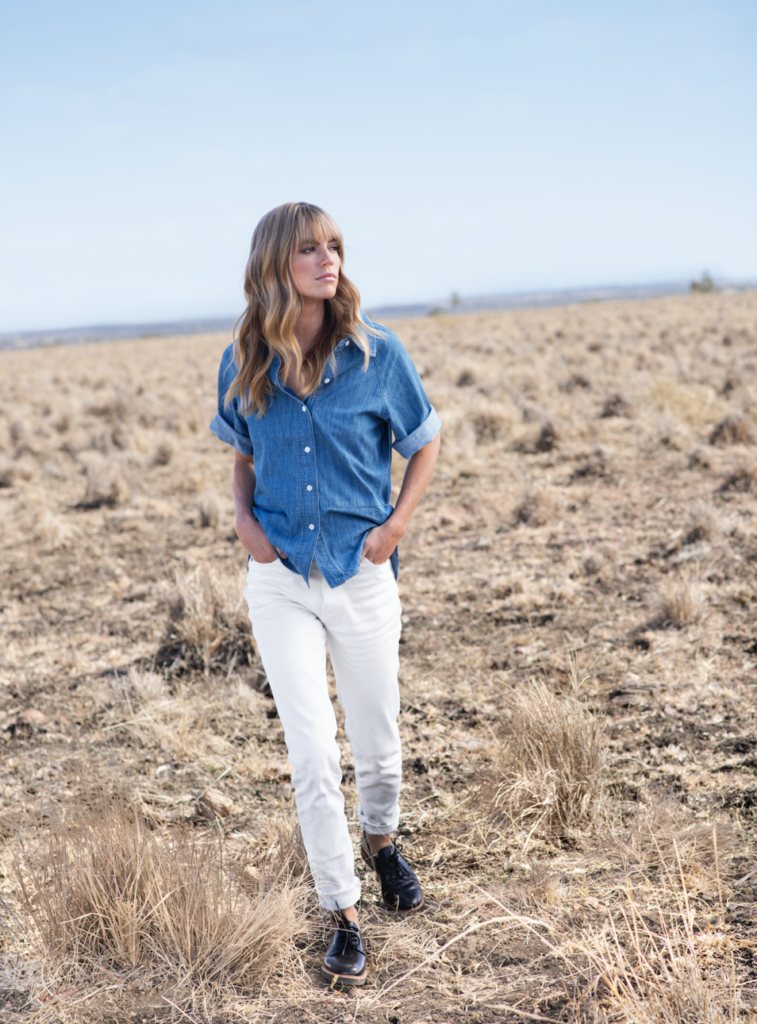
DENIM AS AN INVESTMENT
“We pride ourselves on our attention to detail and our fabrics,” Bartle says. Our strength comes from the fact that we had a five-year period of development before going to market. Our jeans fit better, and now we have fabric choices and washes in Turkish cotton, a beautiful fabric. You can feel the difference. It’s very expensive to produce this way.”
What you are buying when you buy Outland Denim? Education, training and living wages that give girls and women safety and independence. Not to mention, you are choosing a brand that cares about our planet.

